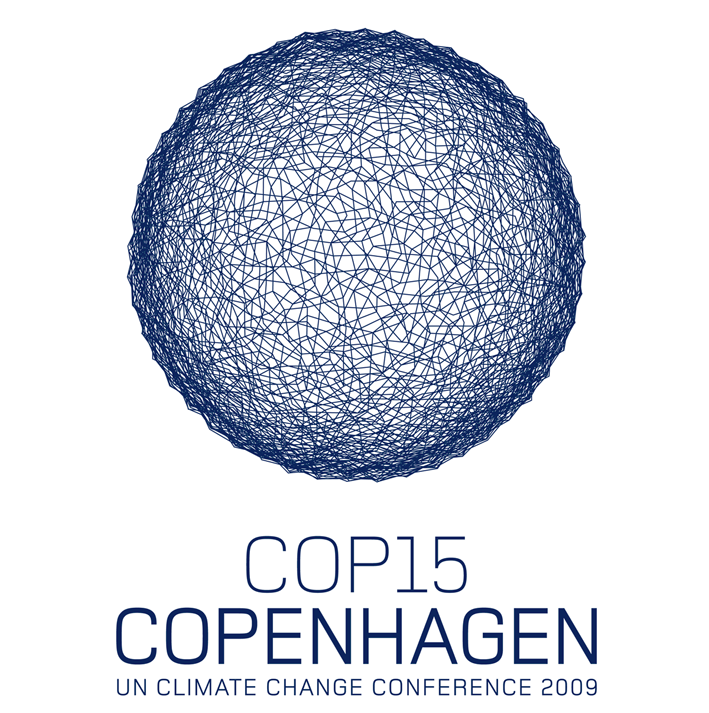Waking up on a dreary Sunday morning this weekend in Copenhagen (where I’ve recently moved to prepare for the upcoming climate talks in December), I was met with a barrage of headlines, mostly from U.S. media, telling me that Copenhagen is doomed to total failure and I might as well head off to Mexico City where next year’s summit will be held. The New York Times cried out: World Leaders Agree to Delay a Deal on Climate Change. The Washington Post bellowed: Copenhagen talks unlikely to yield climate accord, leaders told. Not the best way to start a Sunday morning.
Is Copenhagen really over before it begins? Had I moved to this dark, rainy (but beautiful!) city for no reason? Should we all just pack it up and hope that political declarations will solve it all?
The answer, thankfully, quickly became a resounding “no.” As Grist’s own David Roberts is often the first to point out, the mainstream media clearly got it wrong. There’s still hope — a lot of it, at that.
Let’s start with those headlines. Who are these “world leaders” who agreed to delay? Well, the plural may be accurate, but just barely.
In the 48 hours since initial reports, as Ministers and other government representatives have trickled into Copenhagen for the “pre-COP” preparatory meeting, it’s become clear that while the media reported that all 19 APEC (Asia-Pacific Economic Cooperation) leaders were in agreement on the so-called “one agreement, two steps” approach, that’s not at all the case.
The real story occurred at a hastily arranged APEC breakfast. Danish Prime Minister Lars Loekke Rasmussen made a last-minute visit and surprised the room with a speech that was only vetted by a few of the so-called “leaders.” One can only imagine a room full of bleary-eyed Heads of State sitting around a big table sipping their coffee and politely nodding at Rasmussen’s climate change speech without really understanding how their nods would be translated by the media.
Rasmussen began his speech by saying:
…I would like to share with you how I believe a Copenhagen Agreement could be constructed to serve the dual purpose of providing for continued negotiations on a legal agreement and for immediate action…
And later towards the end of the speech he says:
Some of you might have wished for a different format or for a different legal structure. Still, I believe you will agree with me on one fundamental point: What matters at the end of the day is the ability of the Copenhagen Agreement to capture and reinforce global commitment to real actions.
Doesn’t sound like consensus to me; it sounds like a man trying to convince an audience to go along with him. It’s not entirely clear who actually did agree with the Prime Minister, but what is clear is that there is nowhere near consensus on such a delay approach; in fact, dozens of countries oppose it and are still wishing–and fighting–for more.
Now, what about the actual plan itself — the “one agreement, two steps” plan? Two steps to an agreement doesn’t sounds so bad, right?
As NRDC’s Jake Schmidt wrote, the strategy might not be so bad if you actually thought that the second step would ever be taken. Unfortunately, what Rasmussen has put forward is a cynical approach. It’s becoming clear that all he cares about is getting a “positive” result in Copenhagen, and that the second step could just be for show.
If you look closely at Rasmussen’s APEC breakfast speech, there’s very little incentive to actually finish the job in 2010 (as in, to take the “second step”). Rasmussen explains his vision thusly:
The Copenhagen Agreement should capture progress already achieved in the negotiations and at the same time provide for immediate action already from next year.
The Copenhagen Agreement should be political by nature, yet precise on specific commitments and binding on countries committing to reach certain targets and to undertake certain actions or provide agreed finance.
The Copenhagen Agreement should be global, comprehensive and substantial, yet flexible enough to accommodate countries with very different national circumstances.
The Copenhagen Agreement should finally mandate continued legal negotiations and set a deadline for their conclusion.
Why would any developed country with high emissions want to go back to the table and flesh out a legally binding deal after the pressure of Copenhagen has passed and there is no real obligation to do so? Despite his lip service to “continued legal negotiations”, there’s no clarity nor firm deadline. Rasmussen’s invention of “politically binding”–a term no one seems willing or able to define–is also repeated here.
Furthermore, there is only a passing mention of the Kyoto Protocol later in the speech. Despite what some would have you think, however, the Kyoto Protocol does not expire in 2012. In fact, in 2005, the parties to the Kyoto Protocol agreed to negotiate a second commitment period (2013-2017) and further committed in Bali in 2007 to reaching a conclusion on what that second commitment period would look like. In Rasmussen’s vision, this goal seems to disappear in favor of a “politically binding” outcome.
Indeed, Canadian Prime Minister Stephen Harper–one of the leading climate negotiation blockers now that George W. Bush is out of the picture–has been positively beaming in the press about this announcement. Not a sign of a positive development.
Luckily, there’s still time to push for more. The Alliance of Small Island States, the African Group of nations, and other vulnerable and least developed countries will surely be pushing back on this plan during the prep meetings in Copenhagen this week. In fact, 11 Pacific Island States already have. Some European nations are also likely to stand up to this plan.
The planet and its people need a fair, ambitious, and binding outcome from this process. Countries should be working on such a document in Copenhagen and they can and should finish it there. After all, it’s what they committed to in Bali just two years ago.



